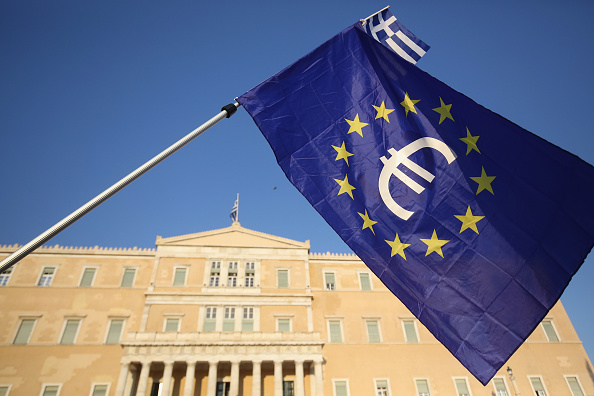Eurozone growth and inflation slow with ECB poised to act

Both price inflation and economic growth in the Eurozone were shown to have slowed in figures released today, boosting the chances the European Central Bank (ECB) will deliver fresh stimulus to kickstart the region’s struggling economy.
Read more: ECB prepares stimulus to kickstart stalling Eurozone economy
Prices in the Eurozone grew at an annual rate of 1.1 per cent in July, according to a first estimate by the European Union’s data body Eurostat, compared to 1.3 per cent in June.
The figure is well below the two per cent mark sought by the European Central Bank (ECB), which last week said it was “determined to act” if inflation stayed low across the euro area.
Meanwhile economic growth in the Eurozone halved to 0.2 per cent in the second quarter of the year. This compared to 0.4 per cent growth in the first quarter.
The reading took the annual rate of economic growth to 1.1 per cent in the second quarter, matching the weak figures seen at the end of 2018.
The data is confirmation of ECB president Mario Draghi’s statement last week that the outlook for the Eurozone is “getting worse and worse”.
Draghi said that “the prolonged presence of uncertainties” such as growing tariff threats and weakness in emerging markets “is dampening economic sentiment, notably in the manufacturing sector”.
Action from the ECB could take the form of interest rate cuts and bond purchases, but could also mean “tiering”. This means the current minus 0.4 per cent deposit interest rate – which means banks pay the ECB to keep money saved there – would not affect all of a bank’s reserves.
Yet the Bank’s board members may be given pause for thought by the fall in unemployment in the Eurozone in June to 7.5 per cent, also revealed today by Eurostat.
The figure is the lowest recorded in the euro area since July 2008 and is down from 7.6 per cent in May and 8.2 per cent in June 2018.
Consumer spending and confidence have been a positive for the area as trade and manufacturing have suffered under a global slowdown, trade tensions, and weak demand from China.
“The raft of weak economic data published this morning strengthens the case for the ECB to announce a package of stimulus measures at its next meeting in September,” said Jack Allen-Reynolds, senior Europe economist at Capital Economics.
“The national data available so far show that the slowdown in the second quarter was broad-based, with growth softening in France, Spain, Austria and Belgium.”
Read more: Eurozone business confidence at six-year low as malaise continues
“The continued weakness of the economic data increases the chance of more significant stimulus being announced in September.”